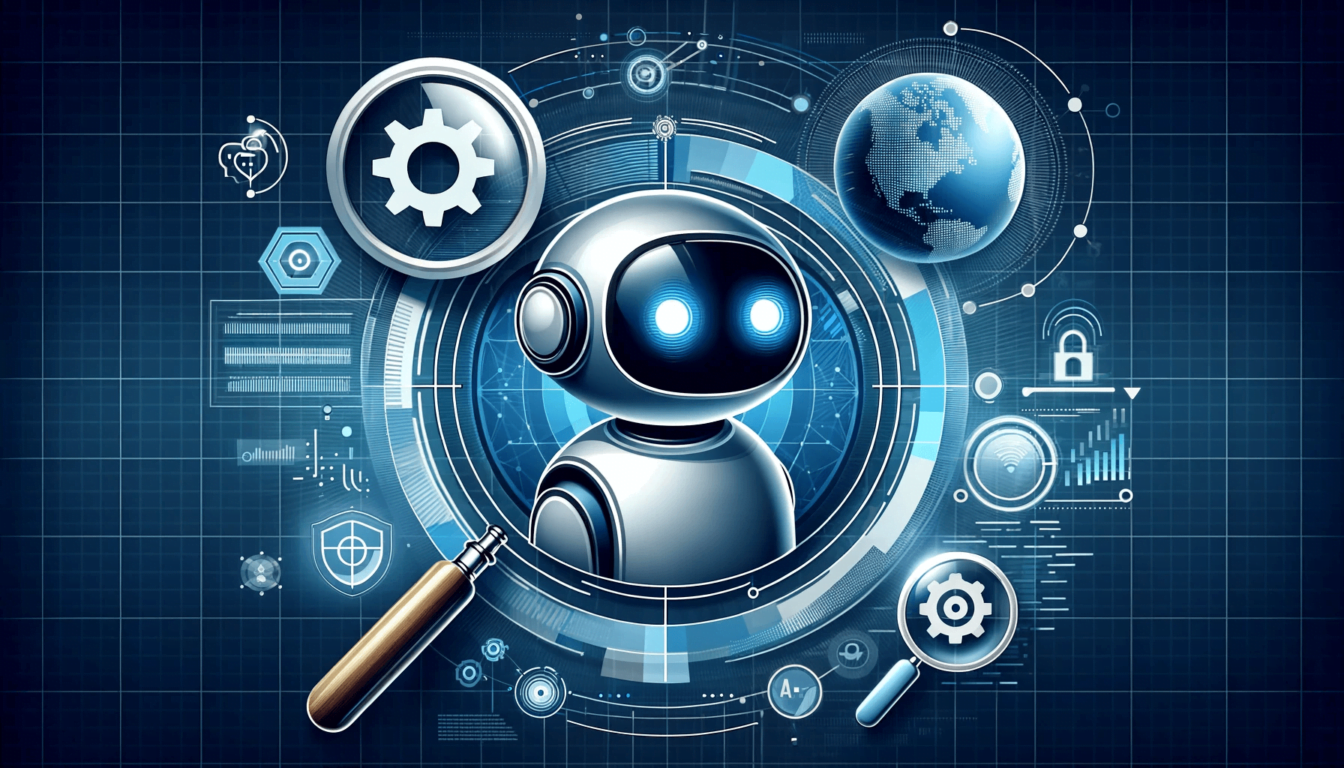The Transformational Role of Chatbots in Digital Marketing
The rise of artificial intelligence (AI) and machine learning has unlocked immense potential for businesses to transform their digital marketing strategies. One of the most significant innovations in this space is the chatbot – intelligent conversational agents that engage customers in natural, human-like interactions.
In recent years, chatbots have become indispensable tools for marketers looking to improve the customer experience, qualify leads, drive conversions, and scale communications in an automated yet personal way. As chatbot technology continues advancing rapidly, their capabilities will only expand further.
This guide explores the immense power of chatbots for revolutionizing digital marketing:
What Are Chatbots and How Do They Work?
Before diving into the marketing applications, let’s first demystify what chatbots are at a fundamental level.
Chatbots are software programs that use natural language processing (NLP) to understand human language and maintain conversational dialogues. They come in a few main varieties:
- Rule-based chatbots rely on predefined scripts and decision trees to map user inputs to appropriate responses. They have limited versatility.
- AI-powered chatbots utilize advanced NLP and machine learning algorithms to understand free-form conversational language, then respond intelligently. This enables highly natural interactions.
- Hybrid chatbots combine elements of rules-based and AI systems for flexibility. The bot can fall back on scripts for predictable queries, while handling new questions intelligently.
Chatbots can be integrated into websites, apps, messaging platforms like Facebook Messenger, or virtual assistant devices. Users converse with a chatbot much like they would with a human agent or friend.
Over time, bots become increasingly intelligent through machine learning. By analyzing real conversations, their NLP and dialogue management skills continuously improve.

Why are Chatbots Taking Digital Marketing by Storm?
So what makes chatbots so uniquely advantageous for digital marketing? There are several key reasons:
1. 24/7 Availability for Engaging Customers
Humans need breaks. Chatbots don’t. They can engage visitors or customers at any time of day or night, without holidays, weekends or miminum wages.
No matter when a person lands on your website, social media page or ad, a chatbot can be there immediately to greet them and start a conversation. This provides immense value in terms of being able to capitalize on marketing opportunities at all hours.
2. Automating tedious marketing tasks
Chatbots excel at taking over rote, repetitive tasks that are major time sinks for human marketers. This includes:
- Fielding common customer service questions
- Qualifying marketing leads with questionnaires
- Sending drip email campaigns and sequences
- Managing reminders, appointments and schedules
- Posting to social media accounts
- Populating CRM systems with prospect data
Automating these types of repetitive tasks enables human employees to focus their time on higher-value strategic work.
3. Cost Savings
In many cases, chatbots are vastly more cost effective than human agents. Once initially built and trained, they can scale communications essentially for free.
Large brands have reported saving millions per year in support costs after rolling out customer service chatbots. For small businesses, chatbots provide an affordable way to offer 24/7 assistance that would otherwise be unthinkable.
4. Seamless Data Collection and Analytics
Unlike human interactions, every conversation with a chatbot can be easily logged, tracked and analyzed.
Valuable insights can be gained on topics like:
- Common customer questions and pain points
- Which marketing offers interest prospects most
- When site traffic and engagement peaks
These datapoints can be used to continuously improve marketing strategies. Chatbots provide a feedback loop to learn exactly what resonates with your audiences.
5. Hyper-Personalized Experiences
With access to customer data and profiles, chatbots can have personalized, contextual conversations that make people feel understood and valued. Promotions, product recommendations and answers can all be tailored to the individual.
Chatbots help avoid the impersonal, one-size-fits-all approach that turns many customers off from brands. People appreciate dealing with an assistant that “gets” them.

Chatbot Use Cases for Digital Marketing
Chatbots are remarkably versatile tools. Here are some of the top applications for marketers:
Customer Service and Support
One of the most popular uses is automating common customer service queries. Chatbots can answer repetitive questions about shipping times, returns, account issues and more, then escalate to human reps when needed.
This improves satisfaction by providing quick answers anytime. It also reduces human workloads so agents can handle higher-level issues.
Lead Generation and Qualification
On websites, ads and social media, chatbots can engage visitors in conversation to determine if they are potential leads before handing off to sales.
Questionnaires help qualify and score leads based on criteria like demographics, interest level and intent to buy. Higher quality leads can be prioritized for follow up.
Appointment Scheduling and Reminders
Scheduling sales demos and setting reminders for webinars or events is time consuming. Chatbots excel at automating appointment setting via conversational interfaces rather than rigid forms.
Social Media Marketing
Chatbots help brands expand their reach and engagement on social platforms. Users can opt-in to receive content via Messenger or chatbots on Twitter/Reddit.
This provides a new channel to share promos, content and events. Chatbots also boost engagement by responding to comments and messages.
Email Marketing
Chatbots integrate with email providers to send personalized sequences based on subscriber data and behaviors. They can segment users based on engagement and interact via email in a conversational way.
Surveys and Market Research
Because people often feel more comfortable opening up conversationally versus filling out dry forms, chatbots can be very effective at market research. They can distribute surveys, collect feedback on new products, and explore needs.
Start earning effortlessly! Claim your $3 bonus and monetize your unused data with Honeygain. It’s simple, secure, and smart.
Claim Nowand watch your balance grow! 🍯💸
Best Practices for Marketing Chatbots
Here are some key best practices to succeed with chatbots:
- Have a clear value proposition – Don’t create a bot for the sake of it. Identify how it will provide value and solve a problem.
- Program conversations carefully – Well-crafted dialogue scripts ensure smooth, effective interactions. Avoid having a bot that feels robotic.
- Personalize conversations – Incorporate customer data to custom-tailor messaging and offers.
- Fun personality – Give your bot some character! Have it use humor, emojis and gifs to develop rapport. But don’t overdo it.
- Test extensively before launch – Any bugs or flaws will turn users off. Rigorously test to uncover issues.
- Integrate across channels – Meet customers on the platforms they already use like Facebook Messenger.
- Make it easy to contact a human – Even the best bots have limitations. Make handing off to an agent seamless when needed.
- Track performance data – Continuously monitor chatbot metrics to identify areas for improvement.
The Future of Chatbots in Digital Marketing
Chatbots have already become a popular fixture of digital marketing. Looking ahead, here are some exciting predictions for the future:
- Chatbots will become the dominant customer service channel, handling 85% of routine inquiries. Only more complex issues will go to human reps.
- Intelligent chatbots will play a leading role in qualifying, nurturing and converting leads. They will integrate seamlessly across the sales funnel.
- Messaging apps like Facebook Messenger will become the interface of choice for consumers to interact with businesses.
- Marketers will increasingly turn to chatbots as an alternative channel to crowded social media feeds. Response rates are often far higher.
- Chatbots will progressively take over managing digital marketing campaigns end-to-end as their capabilities grow.
While chatbots are gaining capabilities rapidly, the consensus is that the technology will complement human marketers rather than replace them. The most effective marketing strategies will leverage bots for automation coupled with human creativity, strategy and emotional intelligence. Getting Started with Chatbots for Marketing Once you decide to pursue chatbots for marketing, the next step is figuring out how to actually implement them effectively. Here is a high level overview of key steps:
Identify Your Goals and Use Cases First, spend time strategizing about how you want to leverage chatbots in your marketing strategy. Some key questions to consider:
What problems do you need to solve? Where can automation help? What are the primary use cases? (e.g. customer service, lead gen, social media) How can chatbots enhance your marketing strategy and channels? What are the key objectives and metrics for success? Clearly defining goals and use cases is crucial for shaping your chatbot initiative.
Research Chatbot Platform Options Next, explore the various chatbot building platforms to determine the right solution for your needs:
Custom-coded chatbots offer the most flexibility but require substantial development skills. Chatbot APIs like Dialogflow provide natural language processing “brains” that can be integrated into your environment. Chatbot apps like ManyChat and Chatfuel enable no-code bot creation through drag-and-drop interfaces. Integrated platforms like Drift combine chatbots with live chat, email marketing and analytics. Evaluate the capabilities, integrations, pricing models and ease of use for each platform. Make sure it aligns with your use cases and in-house expertise.
Design Your Conversational Flows The conversational design is one of the most important elements for chatbot success. Carefully script out the key dialogues and flows for your bot.
Map out conversations branch by branch in a conversational map. Outline the happy paths as well as ways to handle questions, issues and dead ends.
Well designed dialogue flows make interactions smooth and natural. Poor flows result in frustrating dead ends.
Integrate with Marketing Systems Plan how your chatbot will integrate into your existing marketing stack. This may include:
Your CRM system to access customer data Email marketing platform for customized messaging Analytics to track engagement and conversions Live chat for human takeovers when needed Workflows should be seamless between systems. Limit data silos.
Train and Optimize the AI For AI chatbots, your training data is critical for powering accurate NLP and responses. Carefully feed the bot examples of real customer conversations.
Continuously monitor chatbot performance to identify areas for improving. Additional training and tweaks will be needed, especially early on. Be prepared to invest time.
The work doesn’t stop once your chatbot is launched. Ongoing refinement is key to success.
Real World Chatbot Marketing Examples It’s helpful to learn from real world examples of effective chatbot marketing campaigns:
Sephora – Personalized Beauty Tips Sephora’s Facebook Messenger chatbot provides customized skincare routines and tips based on your skin type, recent purchases and preferences. This hyper-personalization helps customers feel understood.
Disney – Interactive Movie Promos Disney promoted films like Thor by creating interactive chatbot stories on Messenger. Users could immerse themselves in engaging, choose-your-adventure style adventures with the characters.
Target – Curated Product Finds Target’s chatbot asks customers about style preferences and recent purchases, then suggests and surfaces relevant products. This curation and personalization helps drive conversions.
North Face – Conversational Commerce North Face’s commerce focused Facebook chatbot helps customers find the right outdoor gear. Users can browse products, see recommendations, complete purchases and track orders fully conversationally.
HubSpot – Lead Qualification HubSpot’s chatbot Conversational Qualified Leads engages website visitors and qualify leads 24/7 based on their responses. Hot leads are flagged for sales to contact.
As these examples illustrate, the possibilities are nearly endless for applying chatbots creatively to a wide range of marketing needs.
Key Takeaways and Next Steps Here are some final tips to help you start exploring chatbots:
Identify where automation can free up valuable time for human marketers to focus on strategy. Start small with a pilot rather than overhauling everything at once. Focus on quick wins and high value use cases. Carefully map out conversational workflows on paper first before programming. Invest in training your chatbot with real customer data for optimal performance. Monitor chatbot metrics closely to spot areas for improvement. Be ready to tweak continuously. Talk to other marketers using chatbots successfully to learn from their experiences.
Partner with a chatbot expert developer if needed to ensure your implementation goes smoothly. The potential of chatbots for revolutionizing digital marketing is huge. Those who leverage this technology early will gain a clear competitive advantage in engaging customers. With a strategic, iterative approach, any business can harness the power of conversational interfaces to take their marketing to the next level. The future is bright for chatbots and digital marketing working together in perfect harmony!
Conclusion: Craft Your Chatbot Marketing Strategy
The marketing automation power of chatbots is undeniable. These AI assistants can single-handedly transform digital strategies to be more efficient, personalized and scalable.
Virtually any business can benefit from an intelligent chatbot to boost conversions, leads and sales. The technology finally makes 24/7 conversational marketing viable for brands of all sizes.
For those looking to get ahead of the curve, now is the time to start strategizing how to best incorporate chatbots into your existing digital marketing mix. Think ambitiously, but start small with a focused pilot that can be expanded based on results.
With a well designed chatbot initiative, your company can deliver phenomenal customer experiences, capture more leads, drive greater sales, and save substantial time for human employees. Chatbots provide one of the most exciting opportunities yet to vault your digital marketing to the next level.

